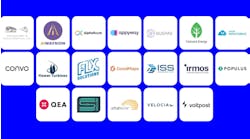Cambridge Systematics tapped to lead new Mobility-as-a-Service project in Minnesota
Cambridge Systematics (CS) was selected as lead technology partner to bring Mobility-as-a-Service (MaaS) to Minnesota.
This initiative brings together two related projects: the Southern Minnesota MaaS project, funded by a Federal Transit Administration Accelerating Innovative Mobility (AIM) Grant; and the Western Minnesota Contactless Payment project, funded by a COVID-19 Research Grant.
These projects will enable Minnesota residents from rural as well as urban areas to seamlessly plan, book and pay for multimodal trips. The underlying technology platform combines existing and emerging transit data standards and an open architecture to promote interoperability and foster innovation. This effort builds on past FTA-funded projects by CS to pilot GTFS-Flex in Vermont and to offer integrated trip planning and booking with FindMyRidePA in Pennsylvania.
“CS is delighted to have the opportunity to work with Minnesota, as well as our partners, to help advance the underlying technologies and to broaden the domain of MaaS functionality to encompass more rural areas in addition to traditional urban markets,” said Sarah Anderson, chief growth officer, Cambridge Systematics.
To deliver this project, CS will partner with Transit, Token Transit and Trillium.
The Minnesota Department of Transportation (MnDOT) will be managing the project in partnership with Minnesota IT Services as the recipient of the FTA grants. The projects will be two-year demonstration pilots to better understand the impact and benefits and challenges of MaaS technology.
“The technology behind MaaS will give the public better access to public transit and shared mobility services in their communities by allowing them to see all their options when planning a trip from A to B,” said Elliott McFadden, Greater Minnesota shared mobility coordinator and MnDOT project lead. “Making this information easier to share in an open platform will allow our transportation partners to publish data on the Transit app and other trip planning apps they chose to partner with.”



